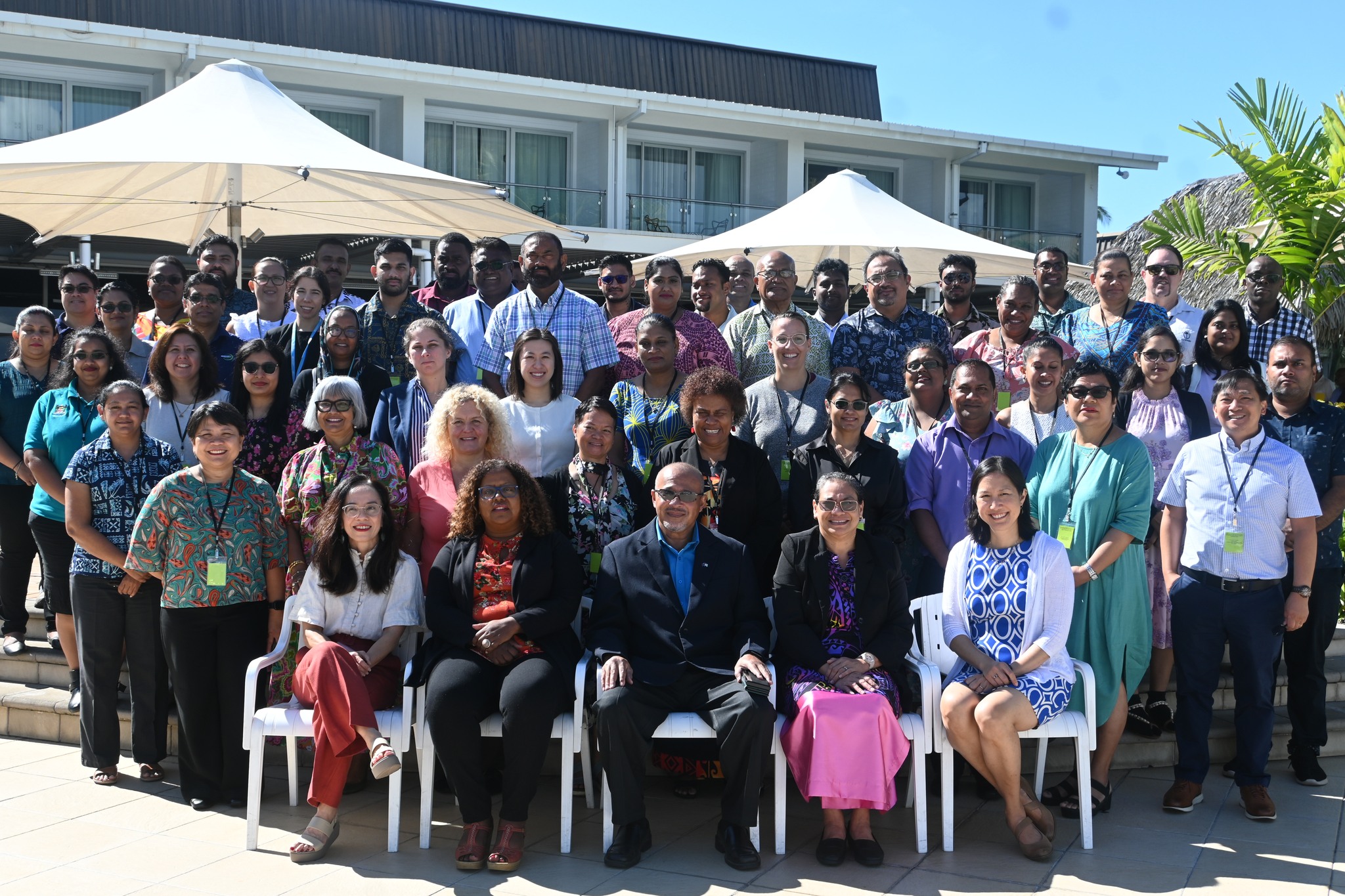EXPERTS GATHER FOR REVIEW OF FIJI NATIONAL ACTION PLAN ON AMR
September 6, 2024

Antimicrobial resistance (AMR) is a global health threat, a silent pandemic that requires our joint efforts to cohesively address.
This was the statement by the Permanent Secretary for Agriculture and Waterways, Dr. Andrew Tukana when officiating at the Multi-sectoral Mid-term Review of the Fiji National Action Plan on AMR and follow-up implementation planning workshop for the animal sector at the Holiday Inn in Suva yesterday.
“This collective fight against AMR is not just a public health issue, but also a matter of food security, economic stability and the overall sustainability our shared space. And I stand with you all here today not just as a government representative but as one of the stewards of our nation’s health, our agricultural sector, and our future,” stressed Dr. Tukana.
Fiji and the Pacific region faces unique challenges in the realm of animal health and public health. These challenges underscore the urgent need for collective action and strategic intervention, including for global health issues such as AMR which encompasses human, animal, and environmental domains and underscores the importance of robust One Health systems.
“We are grateful to have the FAO Emergency Centre for Transboundary Animal Diseases (ECTAD) the Global Health Security project (GHSP) in Fiji which made it possible to gather today. This collaboration between the United States Agency for International Development (USAID), FAO, and the Government of Fiji, started in March 2024. In spite of the many limitations and challenges faced, FAO ECTAD in Fiji is finding its way to deliver its commitments to strengthen the animal health systems in Fiji, mitigating the risks posed by various threats, including AMR - which we are tackling today.”
“We will define where we are now with this plan to refine our way forward. I join you all as we embark on this crucial work of reviewing our progress and plan the next steps to advance the implementation of our One Health National Plan,” added Dr. Tukana.
Dr. Tukana thanked the leadership of NARC and the support of its many partners.
“We have the One Health National Action Plan for AMR for 2022-2025 serving as a blueprint for our Nation’s action to jointly address AMR.”
The plan was developed with a
shared lens, combined professional skills, and joint recognition of the problem
at hand which was summarized into the five key objectives which are:
![]() Improving awareness and understanding
of AMR,
Improving awareness and understanding
of AMR,
![]() strengthening nationally
coordinated and integrated surveillance systems,
strengthening nationally
coordinated and integrated surveillance systems,
![]() reducing the incidence of
AMR in humans, animals and the environment through improved infection,
prevention and control practices (and implementation of Wellness)
reducing the incidence of
AMR in humans, animals and the environment through improved infection,
prevention and control practices (and implementation of Wellness)
![]() optimising the use of
antimicrobials in human and animal health based on the WHO List of Critically
Important Antimicrobials and
optimising the use of
antimicrobials in human and animal health based on the WHO List of Critically
Important Antimicrobials and
![]() establishing and ensuring
governance, sustainable investment, innovation and actions to reduce AMR using
the One Health Approach.
establishing and ensuring
governance, sustainable investment, innovation and actions to reduce AMR using
the One Health Approach.
ENDS
